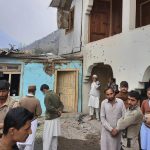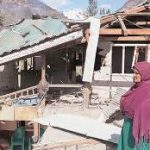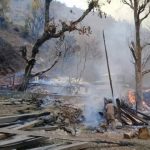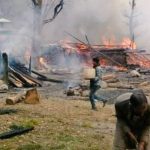COP28 and Pakistan

Hundreds of leaders and delegations from across the world gathered, yet again, for the Conference of Parties (COP 28) in Dubai pledging that the effects of Climate Change would be mitigated and the global temperature would be kept in check bringing it down by 1.5 degree Celsius. This time, the attendees gathered to chalk out a plan so that some countries are not unfairly burdened to face climate change and address the risks associated with it. Goals are usually set unrealistically higher, so that one lands at least somewhere closer to it, but can the world achieve these ambitious goals that it set each year since 1995?
A lot is said in defense of Pakistan that how Pakistan contributes very less, if not the least, to the Greenhouse gases yet it is one of the most defenceless countries when it comes to Climate Change. At home, not much has been done in Pakistan to reduce its vulnerability to this ticking bomb. Although some students have started doing research in non-traditional domains in security the quality of the research is debatable and beyond the scope of this write-up. The decision-makers and policy advisors in Pakistan are still largely fixated on high politics. High politics revolves around guns and tanks, essentially the security and survival of a country. To show some semblance of responsibility and receptivity toward Climate Change, seminars are held, pamphlets are displayed, and discussions make rounds yet little to none is spent on Research and Development resulting in turning Pakistan climate resilient seems to be a distant dream.
Many criticized COP 28 in Dubai, citing the reason that UAE is a major producer and exporter of oil; ironically, a country contributing to Climate Change is the host of the flagship conference on climate. But over the past years, UAE has invested a lot of money in renewable energy, It pledged to reach net zero carbon emissions, and hosting COP 28 is probably a preliminary step in this direction. Pakistan may not have pockets filled with money like that of the UAE to invest in renewable energy still, it has the chance to cooperate with the UAE to mitigate challenges associated with Climate change.
The primary goal of Pakistan for COP-28 is to US dollar 100 billion for addressing climate-related risks. This “Loss and Damage Fund” would be established with collaborative efforts from other developing countries. The noise that Pakistan makes regarding its vulnerability to Climate Change is justified. This COP 28 provides Pakistan with a chance to not only put forward its narrative but also compel states to finally do something substantive regarding climate change. The diversity of participants from various domains is what makes COP-28 an even more opportune event for Pakistan. Not only the heads of the states and governments but the leaders of leading international industries, the private sector, and academia have that made up the audience of COP 28.
Massive floods in July 2022 brought the plight of Pakistanis to international attention. Building on such catastrophic events, Pakistan can strengthen its case to put forward on forums like COP-28. Indeed, not only Pakistan but the world at large is still focused on hard politics, with two wars going on in our neighboring continents, there is growing awareness among the population regarding global warming and climate change. Some years back, people would hardly come out to speak about climate change but this has now become the talk of the town and the public is, gradually, stepping up. This awareness and realization among people put pressure on the leaders and international actors to take some serious measures to address climate crisis.
Pakistan may not be impactful shortly but its action could make it a potential leader for the countries who are prone to climate crisis. Pakistan should shatter the perception that it is trying to extract compensation from wealthy countries instead should generate an impression that it is advocating for all the states that are most at risk. The world generally recognizes that Pakistan is not a major emitter of greenhouse gases and faces greater vulnerability but it has done little to protect Pakistan. Some might question whether Pakistan is putting its weight behind the right actors but efforts made by Pakistan would not go discredited. Pakistan has been able to garner attention by creating noise and mobilizing countries to establish the Loss and Damage Fund. It takes time for developed countries to admit their contribution to climate change but it should not take any longer for them to acknowledge that their contribution is pushing countries to extinction.
The author is Ph.D. Scholar (SPIR-QAU). Currently, she is working at Islamabad Policy Research Institution (IPRI) as Policy Researcher/Consultant. Her work has been published in local and International publications.







Comments